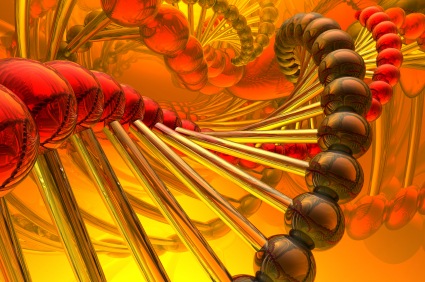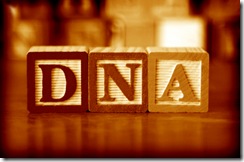 The ninth and final edition of the TGG Interview Series is with Dr. Ana Oquendo Pabón. Dr. Oquendo Pabón is DNA and Historical advisor to the Lost Colony DNA and Research Group, and is an Administrator or Co-Administrator to numerous DNA projects. Her bio is can be seen here.
The ninth and final edition of the TGG Interview Series is with Dr. Ana Oquendo Pabón. Dr. Oquendo Pabón is DNA and Historical advisor to the Lost Colony DNA and Research Group, and is an Administrator or Co-Administrator to numerous DNA projects. Her bio is can be seen here.
In the following interview, Dr. Oquendo Pabón discusses her introduction to the field of genetic genealogy, her own experiences with genetic testing, and her thoughts about the future of genetic genealogy. It’s a terrific interview, so read on.
TGG: How long have you been actively involved in genetic genealogy, and how did you become interested in the field?
Ana Oquendo Pabón: I have been involved in genetic genealogy since very early in 2003. My brother and I have been traditional genealogists for about 28 years. Due to the excellent records on the island and hard research, we had long known all of our 64 grandparents except for one and all except 4 or 5 couples of our 128 ancestors. I had been keeping track of the news online concerning the “new science” and unique way of tracing your ancestral roots. I think everyone had heard about the Thomas Jefferson and Sally Hemmings story by that time. I had also read about a particular genealogist named Bennett Greenspan’s own amazing quest to confirm his paternal DNA with an individual in Argentina and how he had started a genetic testing company to help others accomplish what he had done using yDNA. In 2003, I decided to give my brother a DNA kit as a combined birthday and anniversary present. We were among the first ten thousand genetic genealogy pioneers to take advantage of this new way of research. This spurred the idea of helping others in our field of expertise which was the genealogy of Puerto Rico and the Puerto Rican Project (Proyecto ADN de Apellidos Puertorriqueños) was born. ... Click to read more!
![]() The American Society of Human Genetics is having its 58th Annual Meeting in November. As I was looking through the meeting abstracts, I noticed that there were a number of abstracts that dealt with topics related to genetic genealogy. I thought some of you would be interested in getting an advance look at genetic genealogy research that will be publicly released and published over the next year or two. Although I didn’t include the whole abstracts for most of them, I did include a link for further investigation. (Note: I got this idea from Dienekes’ Anthropology Blog).
The American Society of Human Genetics is having its 58th Annual Meeting in November. As I was looking through the meeting abstracts, I noticed that there were a number of abstracts that dealt with topics related to genetic genealogy. I thought some of you would be interested in getting an advance look at genetic genealogy research that will be publicly released and published over the next year or two. Although I didn’t include the whole abstracts for most of them, I did include a link for further investigation. (Note: I got this idea from Dienekes’ Anthropology Blog). Welcome to the September 14, 2008 edition of Gene Genie! Bloggers have begun to pick up posting with the end of summer, and it seems like everyday there’s a bunch of new interesting posts about the human genome.
Welcome to the September 14, 2008 edition of Gene Genie! Bloggers have begun to pick up posting with the end of summer, and it seems like everyday there’s a bunch of new interesting posts about the human genome.

 Genetic genealogy has the potential to reveal information about your health (for example,
Genetic genealogy has the potential to reveal information about your health (for example,  The ninth and final edition of the TGG Interview Series is with Dr. Ana Oquendo Pabón. Dr. Oquendo Pabón is DNA and Historical advisor to the
The ninth and final edition of the TGG Interview Series is with Dr. Ana Oquendo Pabón. Dr. Oquendo Pabón is DNA and Historical advisor to the 
 Portfolio presents an interesting four-part series by
Portfolio presents an interesting four-part series by 